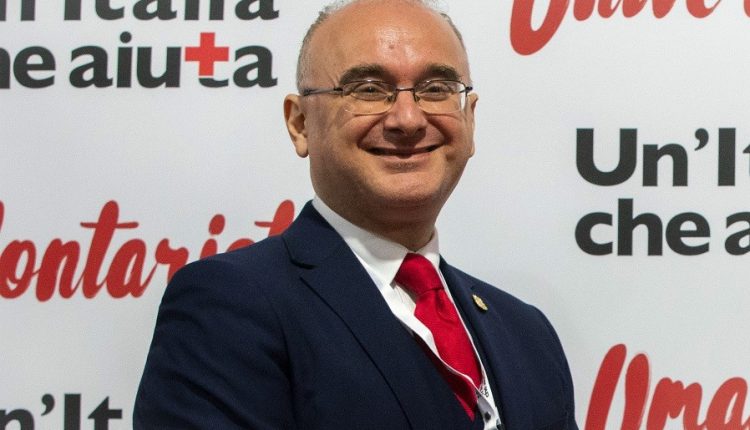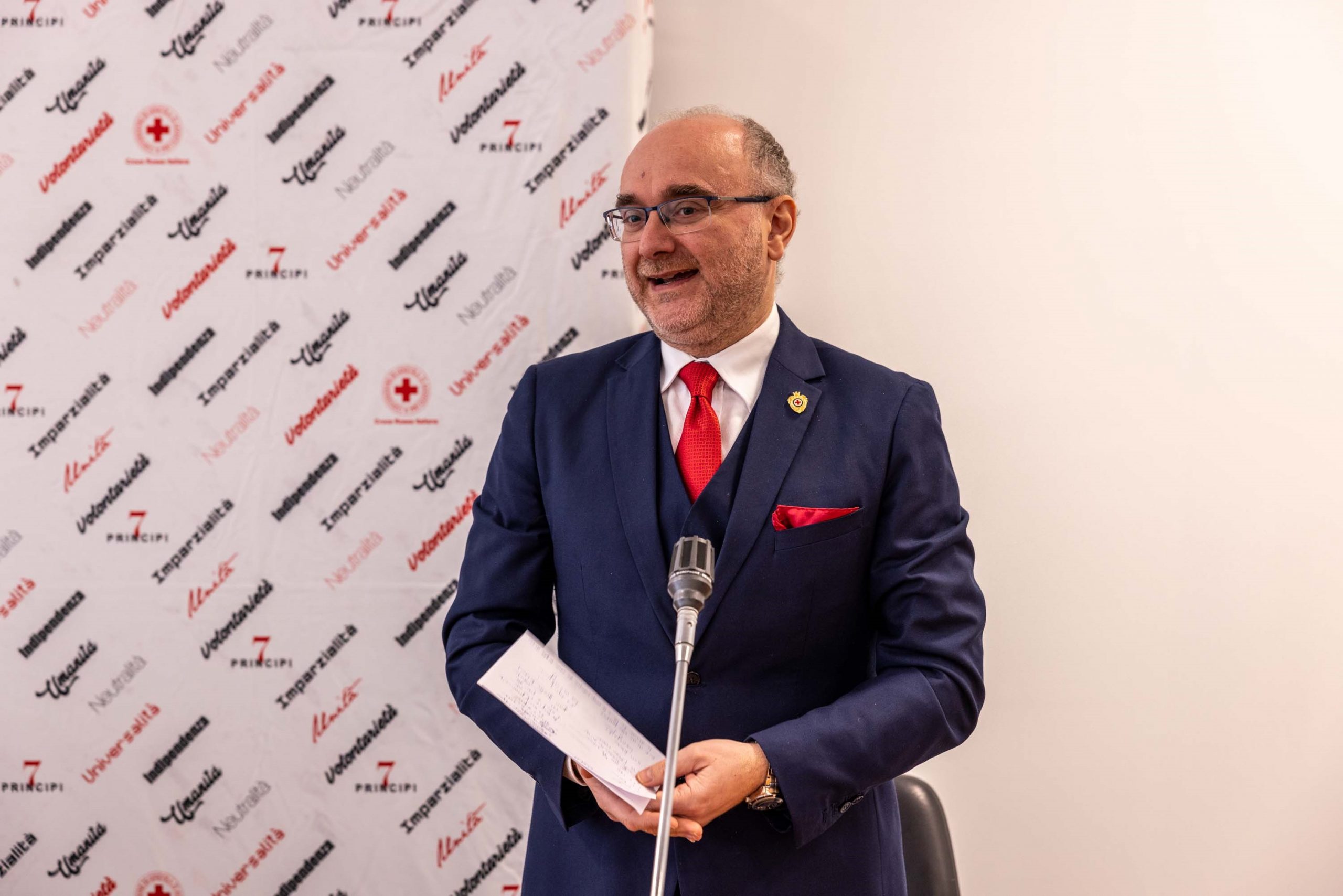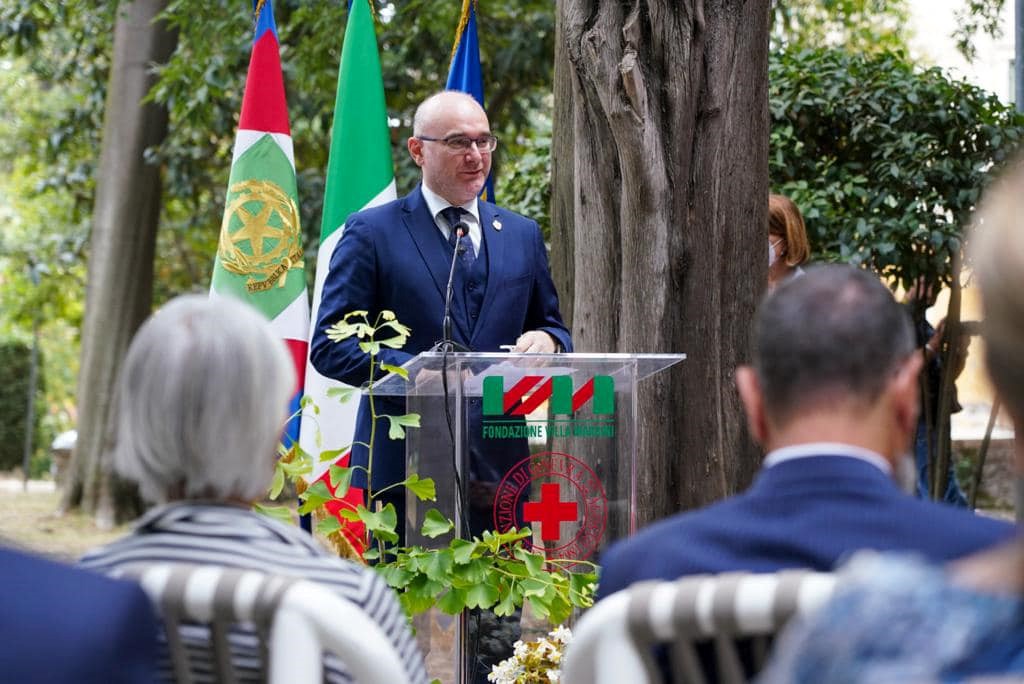
Territory and founding principles in the future of the Italian Red Cross: interview with President Rosario Valastro
Rosario Valastro is the new President of the Italian Red Cross. In the aftermath of Francesco Rocca’s resignation, the most natural choice was to appoint the vice president at the helm of the historic voluntary organisation
Rosario Valastro, experience and simplicity
A decision that was anything but surprising, in reality.
President Valastro, who was born in Acireale (Catania) in 1974, graduated in Law with a specialisation in Public Administration Sciences, has been working in the social field as a volunteer for thirty years, and therefore combines a relatively young age with vast experience.
We asked for an interview with the newly elected president, and were kindly granted one.
Good morning President Valastro, let’s get straight down to business: within a few months there will be elections in the Red Cross. What is the ‘state of the art’ with which the CRI comes to us?
‘The Red Cross,’ the President replies, ‘will arrive at the April elections enjoying excellent health, both in terms of credibility and in terms of operations.
Credibility is undoubtedly necessary in an organisation that deals with humanitarian aid in general, as it means credibility in the eyes of institutions, credibility in the eyes of donors, and above all credibility in the eyes of people who are vulnerable and who need to be helped.
And it also comes to us in terms of operations, as we now have an all-round deployment, with committees that are very active on their own territory, in all the health and emergency aspects, and with interesting projects that are carried out abroad.
I think I can say that we have contributed to overcoming the pandemic phase, both at the beginning and in the vaccination campaign: I think we all come away volunteers proud of the association we belong to’.
I also ask you a question that I put to your ‘peer’ in ANPAS, Niccolò Mancini: the energy crisis is putting a strain on the accounts of voluntary associations. Especially the smallest ones have to cope with pre-Covid agreement tariffs, but current costs have risen sharply. What do you ask of the institutions in this regard?
“The first thing I would ask the institutions is to leave what is working in this country, that is, the great professionalism, passion, motivation, and solidarity that all Italian volunteers express in the social-health field.
We really count on thousands of volunteers who are at the disposal of the communities during the day, at night, on Sundays, on holidays: they do it for free and they do it with great competence.
A competence they have acquired both through training and by being active in the field.
To squander this heritage would be to dissipate an immense patrimony, as well as not doing justice to the history that the voluntary sector has helped to create in this country.
And to do this, urgent action must be taken to support the Third Sector’.
The Italian chronicle speaks of an emergency sector that is increasingly in crisis, and the bills that cyclically appear in parliament seem to be more extemporaneous initiatives than real 118 reform projects. President Valastro, what would the Red Cross’ recipe be, if you could indicate solutions?
‘We set up,’ says the President of the CRI, ‘a permanent table a few years ago, together with the ANPAS and the Confederation of the Misericordie: we did this because we are the first to care about the professional intervention of our volunteers.
We are not against this.
We already do this: we have costs that are absolutely adequate for people who suffer a road accident or who are ill.
Any changes to these training events, which we already have substantial, must correspond to a rationale, which we do not see at the moment.
What we hope for is an all-round focus on service, for volunteers to be able to donate their time.
There is a great tradition of people who, after returning from work, go to the headquarters and donate their time because they want to be useful to their community in the social and health field.
It is easy to overlook this: just don’t look at the rising prices, the out-of-pocket expenses that the associations have to pay.
This is something that has to be considered’.
Let’s talk about Civil Protection: the climate change to which all the Red Crosses of the world devote initiatives and reflections is now a reality that Italians are touching with their own hands. Maxi emergencies and natural disasters occur with increasing frequency.
How is the Red Cross structured in this area? I mean: are there hubs dedicated to specific sectors (e.g. hydrogeology in some places, drones in others, and so on) or is it a uniform distribution of resources in the individual regions?
“Intervention in disasters and major emergencies is one of the Red Cross’s ‘core’ activities, one of those closely related to the reason why the Italian Red Cross was born.
Climate change was born, as you mentioned, as a somewhat niche activity: I remember that the Italian Red Cross talked about it for the first time in 2006.
In the beginning, perhaps the alarms were not seen, were not understood, were not believed in, and in the end we found ourselves acting in the context of disasters that are happening more and more continuously, and with characteristics that had never been seen in our country.
This has entailed and continues to entail the commitment of the Italian Red Cross in the field of mitigation, so we continue to give tools and information to the population to be able to mitigate the effects of heatwaves or cold waves, or any disasters.
Also because where the citizenry is in disarray it also means having twice as many victims, so this education of the people is important because we eventually need everyone’s help.
This I consider essential, just as it is essential not to pretend that nothing is happening: we often hear some scientist speak, but in fields not related to this, and say ‘climate change is part of the history of the world anyway’, and this is unacceptable in my opinion.
It’s just another excuse for doing nothing, even in the international field.
I don’t think it is clear that if you create desertification in vast areas of the world there will inevitably be forced migrations.
The Italian Red Cross is equipped for this: you mentioned the use of drones, we have a national drone school, and we are organising ourselves to be more and more trained in this.
The Italian Red Cross has a whole series of nuclei evenly distributed throughout the country, and there is constant and continuous training within them’.
Let’s talk about Ukraine: the Red Cross, which let us remember is engaged on both fronts of the conflict, has been a privileged ‘target’ of Russian fire for a month, and unfortunately in Kherson you lost a very young volunteer. Does this seem to you to represent a ‘change of pace’ (in a negative sense) in conflict management?
“On the geopolitics of the conflict I don’t think I have any particular qualifications, except as a citizen who has his own opinions.
Having said that, it seems to me we have burnt at least 150 years of humanitarian legal traditions that laid the foundations for civilised coexistence in our countries.
The Geneva Conventions enshrine an absolutely intangible principle, namely that of the inviolability of humanitarian personnel and medical facilities, precisely because war must not affect civilians and must allow medical personnel to treat the wounded on battlefields.
This principle, which has been sadly called into question in recent years, has found further cause for embarrassment in the intervention in Ukraine.
As far as the interventions of the National Red Cross Societies were concerned, they were all in favour of the victims: having had this ‘privilege’, having eyes in all the countries of the world, we asked directly on the spot for what was needed and only sent what was needed.
As for what has happened in recent days, I must say in all fairness that it was not a real ‘target’ of the attack: Russia did not attack the Red Cross headquarters.
There was bombing in those areas, and there was also the Ukrainian Red Cross in those areas.
But civilian targets should not be a target of war, and this must be clear.
This has meant the sacrifice of women, men, boys who not only lose their lives or are injured, but obviously cannot help people.
And it creates fear and discouragement in those who want to help in the future.
This is devastating from the point of view of helping the civilian population.
This issue of the Geneva Conventions must be taken up again in all its importance’.
Let us close with a personal reflection from you. I realise that your role imposes moderation and diplomacy on you, but if Rosario Valastro could choose, what would you like to see as the guideline for the Italian Red Cross in the coming years?
‘Certainly,’ Rosario Valastro reflects, ‘I would like a policy line to be really based on the territory: we really do have a tradition in Italy of millions of volunteers in the Red Cross from its foundation to the present day, and who have contributed to alleviating the suffering of those in difficulty today.
It is an important heritage, I believe that there are few organisations that can boast this tradition and this impact in our country, so much so that there are real pieces of the history of Italy that are intertwined with the history of the Red Cross.
So I would like it to be more and more a Red Cross that treasures what happens on the ground.
Clearly this entails a great deal of trust on the part of all the ‘stake holders’.
Furthermore, I would like it to continue as it is now, remaining firmly rooted in its principles, proud of its past but with a great look to the future, because in any case there are always new ways of helping people and we must be able, as volunteers, to use them.
Also because help given efficiently is help twice as much.
In this sense, I think that being up to the challenges represents the challenge itself’.
Watch the video interview with President Rosario Valastro in its full version
Read Also
Emergency Live Even More…Live: Download The New Free App Of Your Newspaper For IOS And Android
Kherson, Russia Fires On Red Cross: A Young Volunteer And A 39-Year-Old Paramedic Killed
War In Ukraine, New Russian Raids On The Red Cross In Kherson
International Volunteer Day 2022, IFRC: “Believe In The Power Of Kindness”





